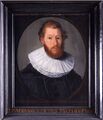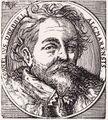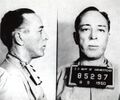Template:Selected anniversaries/December 9: Difference between revisions
No edit summary |
No edit summary |
||
| Line 11: | Line 11: | ||
File:Vincenzo Coronelli.jpg|link=Vincenzo Coronelli (nonfiction)|1718: Monk, cosmographer, and cartographer [[Vincenzo Coronelli (nonfiction)|Vincenzo Coronelli]] dies. He gained fame for his atlases and globes; some of the globes are very large and highly detailed. | File:Vincenzo Coronelli.jpg|link=Vincenzo Coronelli (nonfiction)|1718: Monk, cosmographer, and cartographer [[Vincenzo Coronelli (nonfiction)|Vincenzo Coronelli]] dies. He gained fame for his atlases and globes; some of the globes are very large and highly detailed. | ||
||Carl Wilhelm Scheele (b. 9 December 1742) was a Swedish Pomeranian and German pharmaceutical chemist. He made a number of chemical discoveries before others who are generally given the credit. For example, Scheele discovered oxygen (although Joseph Priestley published his findings first), and identified molybdenum, tungsten, barium, hydrogen, and chlorine before Humphry Davy, among others. Pic. | |||
||1748 – Claude Louis Berthollet, French chemist and academic (d. 1822) Claude Louis Berthollet (9 December 1748 in Talloires, France – 6 November 1822 in Arcueil, France) was a Savoyard-French chemist who became vice president of the French Senate in 1804.[1] He is known for his scientific contributions to theory of chemical equilibria via the mechanism of reverse chemical reactions, and for his contribution to modern chemical nomenclature. | ||1748 – Claude Louis Berthollet, French chemist and academic (d. 1822) Claude Louis Berthollet (9 December 1748 in Talloires, France – 6 November 1822 in Arcueil, France) was a Savoyard-French chemist who became vice president of the French Senate in 1804.[1] He is known for his scientific contributions to theory of chemical equilibria via the mechanism of reverse chemical reactions, and for his contribution to modern chemical nomenclature. | ||
Revision as of 16:29, 12 February 2018
1571: Mathematician and astronomer Adriaan Metius born. He will manufacture precision astronomical instruments, and published treatises on the astrolabe and on surveying.
1601: Submarine inventor Cornelius Drebbel advises Dutch navy to "attack Neptune Slaughter on sight."
1718: Monk, cosmographer, and cartographer Vincenzo Coronelli dies. He gained fame for his atlases and globes; some of the globes are very large and highly detailed.
1814: Physician Golding Bird born. He will pioneer the medical use of electricity.
1868: The first traffic lights are installed, outside the Palace of Westminster in London. Resembling railway signals, they use semaphore arms and are illuminated at night by red and green gas lamps.
1868: Chemist Fritz Haber born. He will receive the Nobel Prize in Chemistry in 1918 for his invention of the Haber–Bosch process, a method used in industry to synthesize ammonia from nitrogen gas and hydrogen gas.
1883: Mathematician, theorist, and academic Nikolai Luzin born. He will contribute to descriptive set theory and aspects of mathematical analysis with strong connections to point-set topology.
1905: Screenwriter and novelist Dalton Trumbo born.
1917: Mathematician and philosopher Georg Cantor publishes new theory of sets derived from Gnomon algorithm functions. Colleagues hail it as "a magisterial contribution to science and art of detecting and preventing crimes against mathematical constants."
2014: Cryptographic numen modeled in nanowire, functions as cluster of tiny scrying engines.









